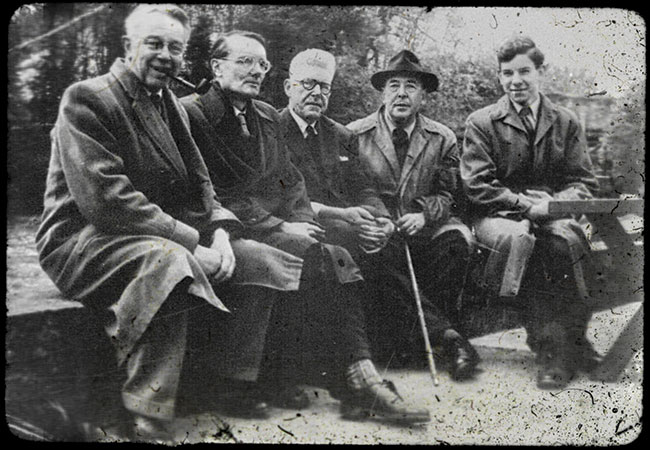Diana Pavlac Glyer on the dynamo of The Inklings ...
The group served its purpose: Tolkien won the curriculum debate, and the meetings came to an end. But the two new friends decided to meet each week, first sharing lunch and conversation and then exchanging drafts of the poems and stories they were writing.
This simple plan had a profound impact. Both men thrived as they offered encouragement, criticism, and advice. These critique sessions were so fruitful that they invited others to join them, including Owen Barfield, David Cecil, Hugo Dyson, and Charles Williams. Lewis’s brother, Warren Lewis, became a regular member, as did Tolkien’s son Christopher. They called themselves the Inklings. All in all 19 men joined this writers’ circle, and they met weekly for 17 years. Members brought rough drafts of works in progress. They read them aloud, heard honest critique, and revised their work in response.
These writers had different outlooks, competing interests, contrasting backgrounds, and varied Christian traditions—but found common ground in their common labor. As Lewis once explained: “Friends are not primarily absorbed in each other. It is when we are doing things together that friendship springs up—painting, sailing ships, praying, philosophizing, fighting shoulder to shoulder. Friends look in the same direction.” A stran-ger becomes a friend, said Lewis, when we “fight beside him, read with him, argue with him, pray with him.”
The work of the Inklings changed the landscape of literature; the experience transformed their lives. Warren Lewis called the Inklings “a famous and heroic gathering” and said their meetings were characterized by “an outpouring of wit, nonsense, whimsy, dialectical swordplay, and pungent judgment such as I have rarely heard equaled.” Tolkien expressed his appreciation with simple enthusiasm: “That was true joy!” And Lewis mused, “Is any pleasure on earth as great as a circle of Christian friends by a good fire?” He added, “What I owe to them all is incalculable.”
If students are less equipped to converse with one another than they once were, faculty members also seem to have become deficient in this area. The past few years have seen an increasing dearth of collegial talk.Conversation used to be a great draw for those contemplating an academic career. One could engage with a wide variety of people who loved ideas and had devoted their lives to them in an environment conducive to intellectual exchange. There was time for long lunches and summers off to do research and share new knowledge with interested peers.Forty years ago, when I first arrived at my university, the faculty club offered three meals a day. There was also a cozy bar, tucked in the corner of the same floor, that opened at 4 p.m. and that a variety of faculty and staff, including the university president, frequented on a regular basis. One friend recalled how he and the president, after a few drinks, cooked up the idea of making a documentary film about the introduction of microcomputers to the university. (This was the early ’80s and the film was made, complete with a cameo from Steve Jobs, whose Macintosh computers the university had made available to all students.) Faculty members then looked forward to conversation; new courses, research projects, and partnerships were hatched over meals and over drinks.
By the early 1990s, however, the bar had closed. A decade later, the faculty club had ceased to serve breakfast and dinner. Lunch was offered but was woefully attended. People complained that the food was bad, but the real problem was that faculty members weren’t motivated to meet each other in the old way. They preferred to eat prepared salads at their desks, to catch up on grading or grant-proposal editing. They didn’t want to take time away from busy schedules to trek a block or two to the club. Only one table was regularly occupied — by a group of septuagenarian engineers. These men, the product of an earlier era than my own, were lively conversationalists. I would occasionally join them, and they were always welcoming. Their impresario was an electrical engineer who would expound, Dr. Johnson-like, on everything from opera to politics, the rest of the group chiming in at intervals. It was the last remaining vestige of the collegial university of yesteryear.
"Is any pleasure on earth as great as a circle of Christian friends by a good fire?"
Abolish the cult of "busy".












































































































































































No comments:
Post a Comment